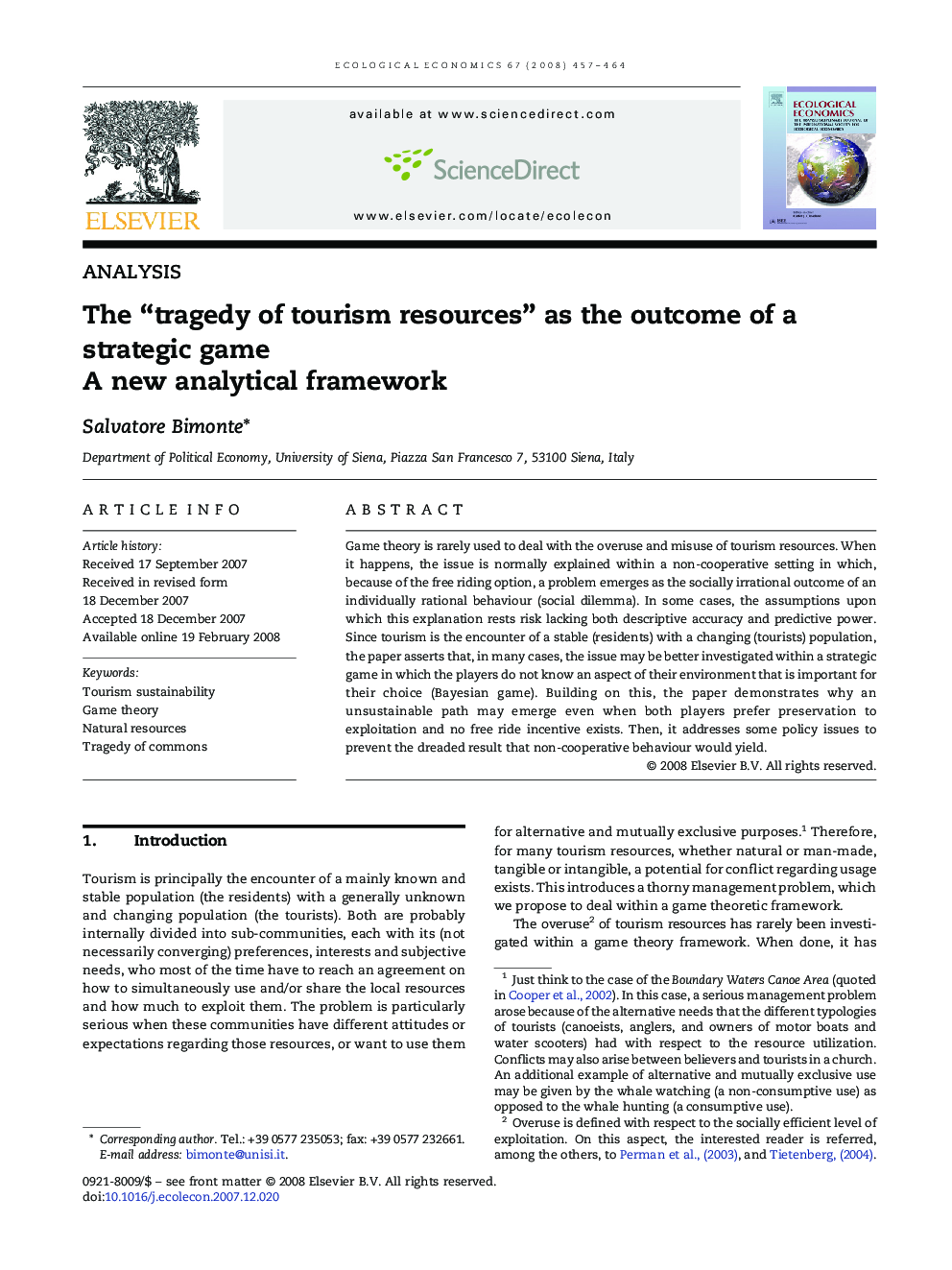| Article ID | Journal | Published Year | Pages | File Type |
|---|---|---|---|---|
| 5051184 | Ecological Economics | 2008 | 8 Pages |
Game theory is rarely used to deal with the overuse and misuse of tourism resources. When it happens, the issue is normally explained within a non-cooperative setting in which, because of the free riding option, a problem emerges as the socially irrational outcome of an individually rational behaviour (social dilemma). In some cases, the assumptions upon which this explanation rests risk lacking both descriptive accuracy and predictive power. Since tourism is the encounter of a stable (residents) with a changing (tourists) population, the paper asserts that, in many cases, the issue may be better investigated within a strategic game in which the players do not know an aspect of their environment that is important for their choice (Bayesian game). Building on this, the paper demonstrates why an unsustainable path may emerge even when both players prefer preservation to exploitation and no free ride incentive exists. Then, it addresses some policy issues to prevent the dreaded result that non-cooperative behaviour would yield.
